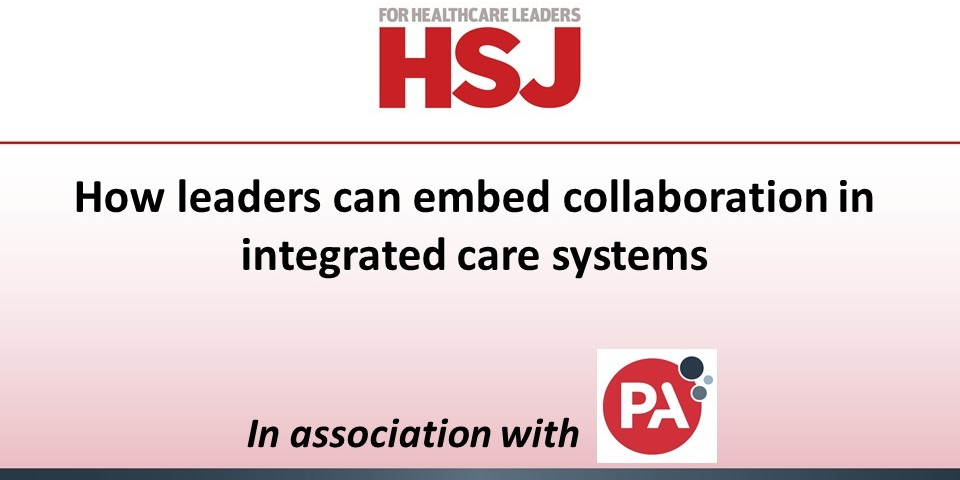
How leaders can embed collaboration in integrated care systems
The covid pandemic saw NHS organisations and their partners collaborate as never before. The need to support the large numbers of patients requiring intensive care while also ensuring that people with other conditions were cared for – some through new remote models – drove rapid innovation and joint working to radically redesign services.
The same shared purpose and joint endeavor will be needed to ensure the success of integrated care systems if they are to secure improvements in population health, reductions in health inequalities and new more collaborative ways of working. After 18 months of dealing with the pandemic which has left many NHS staff – both clinicians and non-clinical – exhausted, and significant ongoing competing pressures, how can leaders ensure that the integration opportunity is not missed?
This HSJ webinar, in association with PA Consulting, looked at how collaboration can be embedded in how ICSs work to support improvements in population health. It asked:
• How can relationships between leaders in different organisations and their teams can be developed to better enable collaboration? What practical steps can leaders take to positively develop these relationships and tackle the problems that face us right now?
• What sorts of organisational structures will best promote collaborative working? How will these differ between areas and is there enough flexibility in NHS England/Improvement guidance to allow this?
• How can ICSs motivate and engage with staff and stakeholders at all levels to get buy-in for this work? What are the touchpoints leaders need to tap into to effectively deliver collaboration? What impact will this have on service change for staff at the frontline?
• What can we learn from ICSs who are already driving forward collaboration to help address population health challenges?
